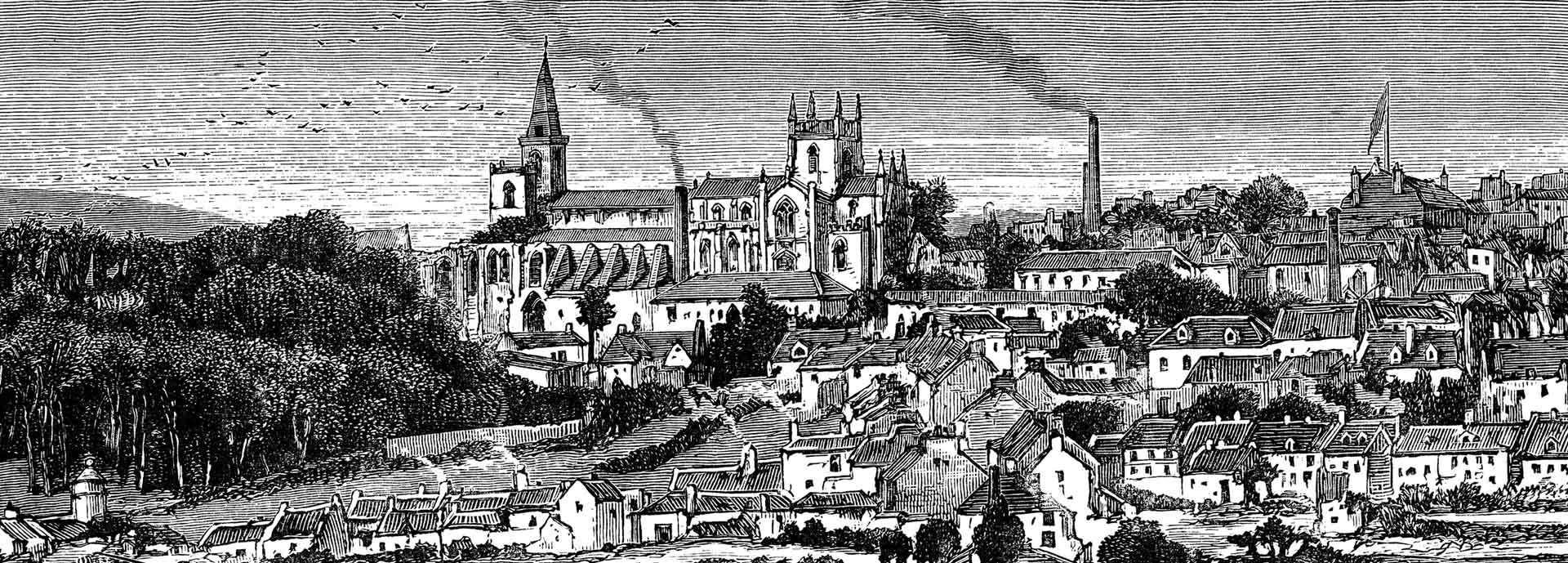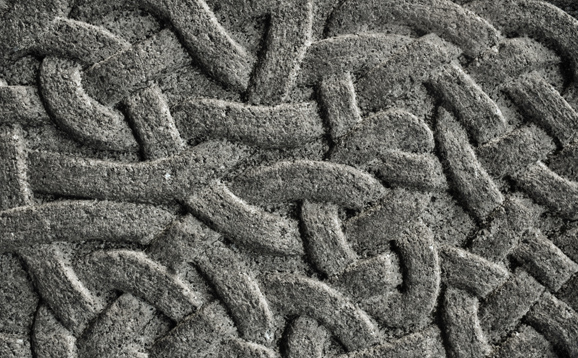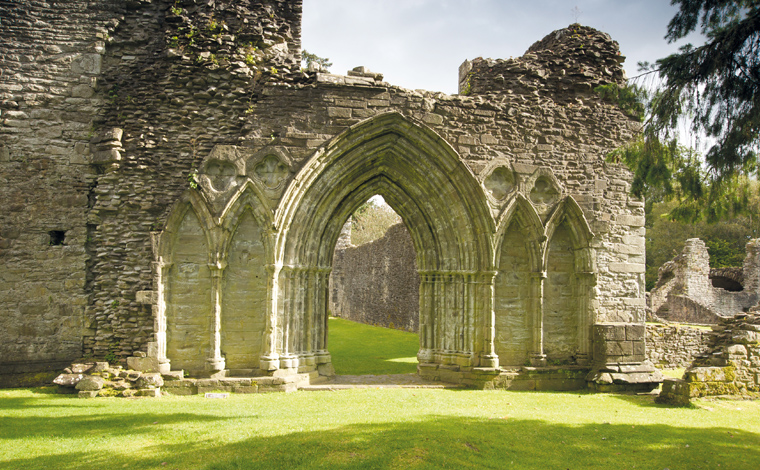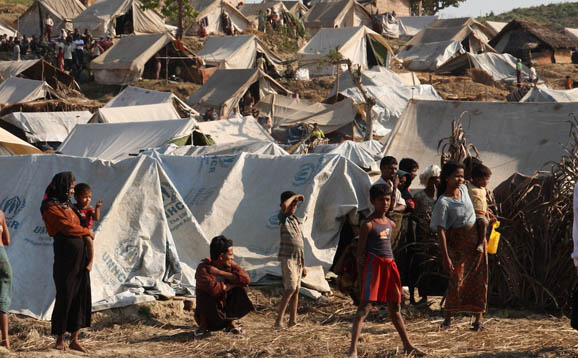History and Heritage research
Historical research at Stirling covers twelve centuries from the early medieval period to the 1990s, with distinctive strengths in Scottish history in its transnational and transatlantic connections, American history, and modern European history. Within this broad framework, we have developed a sustained global reputation in three related thematic fields: environmental history, cultural heritage, and the question of how individuals and groups have mobilised locally, nationally and globally to achieve political representation.
We work with diverse methodologies at the cutting edge of our discipline, ranging from archaeology, museology, demography and migration studies to International Relations, economic history, sociology, social anthropology, performance studies and law. Biography and critical editing have been especially powerful ways of exploring issues of political legitimacy, environmental change, and social development in a transnational context. Religious history has been a particular strength in our unit since its foundation in the late 1960s.
This constellation has empowered us to pursue a distinctive high level of formal and informal inter- and multidisciplinary collaboration across our Division, the Faculty, and the University.
Our research
Environmental History and Heritage
Find out more about the research that makes the University of Stirling one of the most prominent university centres for environmental history and heritage in the UK.
Social Movements and Political Representation
Research exploring the consequences of war on society, the role of religion in politics and society and more.
Scottish History in Transnational and Comparative Contexts
Our research explores Scotland's history, from local, to regional and national, and its place within networks that reach across the Atlantic and to northern and central Europe.
Featured research
Centre for Environment, Heritage and Policy
Our research brings together experts from a range of backgrounds, including History, Heritage, Politics, the Environmental Sciences, Ecology, Sociology and Law in five interlinking strands.
Divisional research seminars
We run a regular programme of seminars within the Division of History, Heritage and Politics, sharing our latest research and inviting guest speakers to do the same. Take a look at our schedule of upcoming events.
Centre for Policy, Conflict and Co-Operation
The Centre for Policy, Conflict and Co-Operation seeks to broaden the debate to consider conflict and co-operation more broadly, in both international and domestic society and in relation to environmental and climate change.

Research Spotlight
Dunfermline Abbey is one of the most important ecclesiastical sites in Scotland. Find out how Stirling research has been central to reshaping its rich story and bringing its historical significance to the fore.
Explore more
Colleagues from our unit lead two university initiatives: the Centre for Environment, Heritage and Policy and its funded interdisciplinary Research Programme on Cultural Heritage as well as the Centre for Policy, Conflict and Co-Operation Research with its funded interdisciplinary research programme on Human Security, Conflict and Co-Operation.
Within the Division of History, Heritage and Politics, we host the Scottish Political Archive. Together with colleagues from Dundee, we currently host a major project on the Scottish Privy Council, generously funded by the Leverhulme Trust. Through the Micropasts project, we have a clear footprint in digital humanities initiatives.
We have also worked closely with the Stirling University Archives in a number of initiatives, such as acquiring the papers of the anti-colonial campaigner Peter Mackay through a crowdfunding campaign.
We have a very active community of research students, many of them funded by the AHRC or the ESRC. We especially encourage partnerships with the public sector, especially in the field of Heritage Studies and supervise a number of Collaborative Doctoral Studentships. We run regular research seminars in which all colleagues, PhD students, Masters and undergraduate students engage with cutting-edge research from scholars around the world.
We have formal partnerships with Historic Environment Scotland, the Norwegian Institute for Cultural Heritage Research and the Forbidden City and Palace Museum Beijing.
PhD opportunities in History and Heritage
Heritage PhD
Study for a PhD or MPhil in Heritage at the University of Stirling and you’ll be part of a vibrant research culture, supervised by academic staff who are international leaders in their fields. You will join a dynamic cohort of early career researchers who benefit from a cutting-edge interdisciplinary research environment. Students benefit from the University’s Centre for Environment, Heritage and Policy and the Interdisciplinary Research Programme in Cultural Heritage, as well as our institutional partnerships with the Norwegian Institute for Cultural Heritage and the National Trust for Scotland.
Our research makes a tangible impact on heritage policy and practice and improves the quality of life of the communities that we engage with. We examine how ideas of a shared past are created and contested through diverse forms of tangible and intangible heritage, which we see as fundamentally interrelated. We also explore the ways in which heritage intersects with some of the most significant challenges of our time, including issues of nationalism, sustainability, diversity and inclusion, decolonisation, climate change, and disasters. Collaborating with heritage professionals, communities and civil society we explore fundamental issues underpinning the field, including authenticity, memory, identity, and place, alongside practice-led lines of inquiry in areas such as conservation, significance assessment, social value, museology, replication, reconstruction and community participatory practices.
Students have access to dedicated research facilities, as well as the opportunity to participate in a range of research seminars and workshops. The University of Stirling’s Institute for Advanced Studies delivers an excellent research training and career development programme, and students also participate in the training offered by the Scottish Graduate School in Arts and Humanities (SGSAH). We have a strong track record of supporting our students to gain funding and value cross-disciplinary supervision, working with colleagues in the Faculties of Social Sciences, Natural Sciences and Stirling Management School, as well as other disciplines in Arts and Humanities.
When you click the apply link below, you will be directed to an application form titled "PhD History”. Please be assured that this is the correct form to use for Heritage, because PhD History and PhD Heritage share an admissions code.
| Read more about how to apply and see entry requirements | What's the difference between a PhD and an MPhil? |
History PhD
Study for a PhD or MPhil in History at the University of Stirling and you’ll be part of a dynamic culture where collaboration is key, international links abound and the desire to make a meaningful contribution to society is always at the forefront of our minds.
Research students can draw on the expertise of our academic staff, all of whom have national and international reputations in their respective fields. We value the opportunity to work with new research talent and have put in place a supportive environment for you to develop your skills and pursue your specialist field of research.
The Faculty of Arts and Humanities has a vibrant postgraduate research community working across its four Divisions. Students are provided with access to dedicated research facilities as well as an opportunity to attend a range of research seminars and workshops within specialist research centres and collaboratively across multi-disciplinary subjects. Research students have access to a number of training opportunities, at University, Faculty and Divisional levels, including subject specialist training within postgraduate research seminars and other forums.
| Read more about how to apply and see entry requirements | What's the difference between a PhD and an MPhil? |



